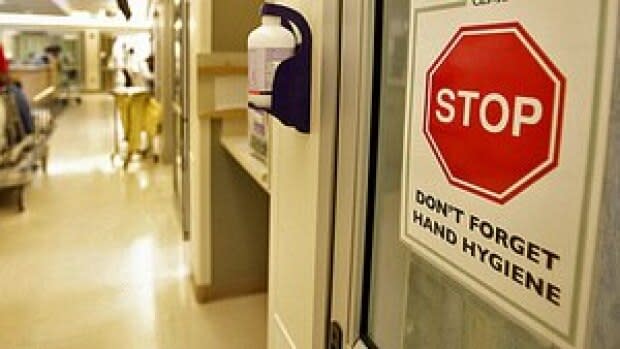Hand washing rates at Edmonton hospitals improve, but could be better
Have you ever asked your doctors or nurses to wash their hands? A local emergency doctor says you should.
"You have to hold people accountable, and you have to make sure it's a priority and it's not just a campaign of the week," said Dr. Louis Francescutti, an emergency room physician at the Royal Alexandra Hospital.
The latest hand hygiene performance measures from Alberta Health Services show Edmonton hospitals went from worst to near-benchmark for how regularly hospital staff wash their hands over the past six years.
The Edmonton zone went from 57 per cent hand washing compliance in 2013-2014 to 87 per cent compliance for the current measurement year.
The Calgary zone compliance rate was 86 per cent, still below the provincial target of 90 per cent.

AHS changed its hand hygiene monitoring system in 2015. Trained monitors at hospitals use electronic devices to register whether staff wash their hands during the four key moments of patient care, including before and after seeing a patient.
"Sort of secret observers hang around and watch you, and you don't even know that they're there," said Francescutti.
AHS said more than 900 monitors worked at 223 sites across the province during the current monitoring year.
"It's perfectly acceptable to ask your health care provider to wash their hands in front of you." - Dr. Louis Francescutti
Though compliance is trending up, Francescutti said he thinks 100 per cent compliance is a realistic target.
"The expectation is you don't put patients in harm's way," said Francescutti, a professor at the University of Alberta School of Public Health. "Not washing your hands puts patients in harm's way."
"It's perfectly acceptable to ask your health care provider to wash their hands in front of you. If they refuse, you can file a complaint with the nurses' college or the physicians' college."
Technology making a difference
Dr. Geoffrey Taylor runs the AHS hand hygiene monitoring program. He said technology is playing a big role in how efficient staff can be when it comes to washing their hands on the job.
"Alcohol-based hand rub is far more efficient, takes far less time and requires far less infrastructure than soap and water," said Taylor.
"You can have hand hygiene dispensers right at the patient's bedside for staff to use. I think that's been a very important innovation."
"Publishing the results publicly is also a factor."
Taylor recently completed research that showed rates of infection developed by patients while in Canadian hospitals went down by 30 per cent between 2009 and 2017.
"We've known for very many years than hand hygiene is important in preventing infections," said Taylor.
The most common infections caused by poor hand hygiene in Alberta hospitals include clostridioides difficile bowel infection, urinary tract infection, pneumonia, bloodstream infections and wound infections after surgical procedures, he said.
Of the six large hospitals monitored in the Edmonton zone, the Grey Nuns had the highest compliance rate at 92 per cent. The Stollery Children's hospital had the lowest rate at 80 per cent.
The most improved was the University of Alberta Hospital, going from 43 per cent compliance in 2013-2014 to 89 per cent in the current year.

